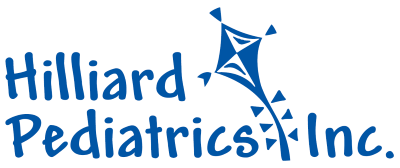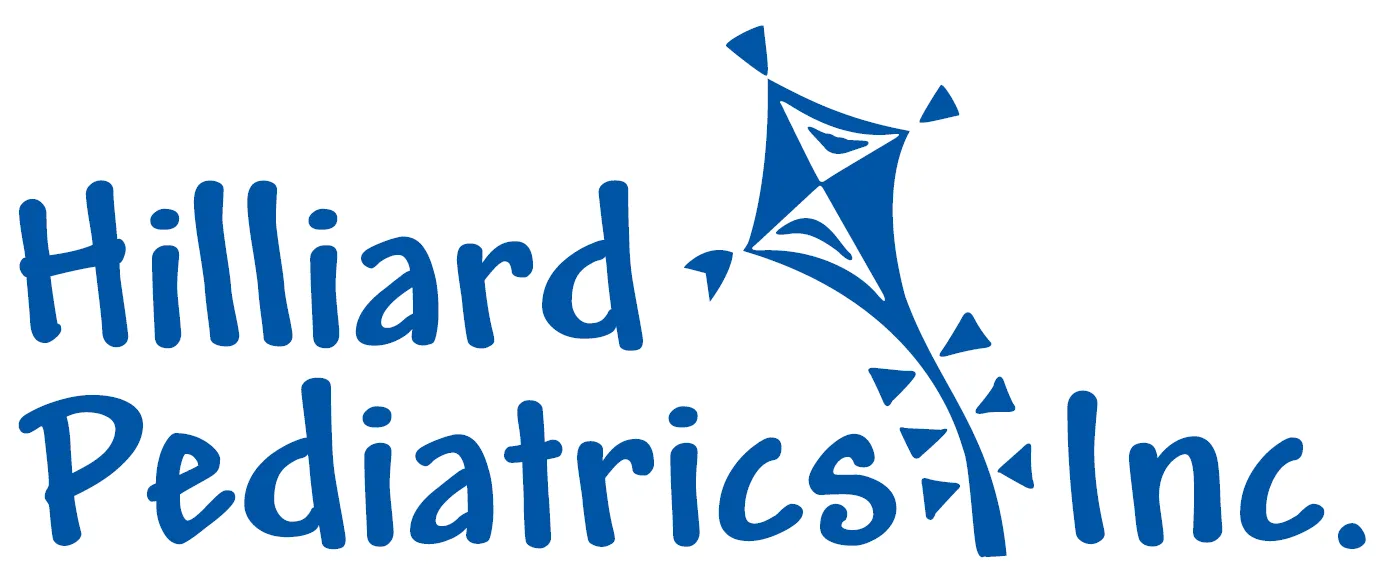Bronchiolitis and RSV
Hilliard Pediatrics, Inc. - Dr. Tricia Lucin, MD
Introduction
Commonly caused by RSV (Respiratory Syncytial Virus), bronchiolitis is combination of wet cough, fever, copious nasal drainage, and sometimes wheezing or respiratory distress in young children and infants There are many other "cold" viruses that can cause bronchiolitis and as such, it is most commonly seen in winter. There are no medications that make bronchiolitis better (ugh, another one of those viral illnesses!!), but there are many ways we can support babies and young children to feel better and recover. Most babies are able to stay at home with bronchiolitis, but if there is respiratory distress, low oxygen in the blood, or difficulty maintaining hydration due to breathing, some do have to be hospitalized. Let's dig into this further.
Remember, this is not an exhausitve document and if you have concerns about your child you should call us or seek care in the emergency room.
Symptoms & Causes
Bronchiolitis is a "clinical diagnosis" which means that kids don't need a special blood test or x-ray to know that it's bronchiolitis. Physicians and medical providers can tell based on talking with you about symptoms and doing a physical exam. Some common elements are harsh/wet cough, lots of nasal drainage, increased fatigue (but often poor sleep due to coughing), and fevers. You might also hear wheezing from your child (and if you do, you need to call for an appointment or seek medical care).
Infants and children share their germs readily and often bronchiolitis is passed around families and daycare rooms or babysitters in the winter. It is classically caused by RSV, but can be caused by many other common cold viruses as well. As with most infectious illnesses, best prevention is handwashing and sanitizing of surfaces. Babies typically start with nasal drainage and coughing, which worsen over the course of 3-5 days, and then start to get better. In total, the cough of bronchiolitis often takes 2 weeks or more to completely resolve. These are not fun times!
Treatment
There is no particular medication that makes bronchiolitis better. Antibiotics do not help viral illnesses resolve. The best thing we can do is keep baby's nose cleaned out. Get that booger-sucker ready and use it! Yes, your baby will hate it. And yes, your baby will also sound and feel better afterwards. You do need to be careful not to cause trauma to the nose with a bulb suction as these go into the inside of the nose. Some other suckers have wider bases that do not touch the inside of the nose, and these are less likely to cause damage (so can be used more frequently!). Somtimes a few drips of nasal saline to the nostrils a minute before suction can be helpful to loosen up the mucus that is in there. Nasal suction makes the most difference before feeding and sleeping.
Additionally, infants will likely feed smaller volumes, but maybe more often. We want to pay attention to hydration (tears, urinating at least 3-4 times per 24 hours) during any illness. Your baby might take overall less volume of feedings than typical, but if they are staying hydrating that is ok. Eating will return to normal as he/she is feeling better.
Humidifiers next to the bed might be helpful to keep mucus from settling, but please get that humidifier clean routinely (they get gross fast).
Fever reducers (acetaminophen, ibuprofen) are just fine to use for any discomfort that might accompany bronchiolitis, but won't help the cough or breathing symptoms. Fevers are common! You don't have to give medication for fevers (or stay up all night checking temperatures), but if baby/kiddo is fussy, feeling bad, or otherwise has discomfort, these medications are great to use.
Over a few days, most kids start to get better and then slowly, but surely, return to their baseline. We must be diligent to watch a baby or child's work of breathing during illnesses such as these. What does that mean? Look at your baby's belly. When babies breathe normally, there isn't a lot of movement to their tummy or chest, just gentle rising and falling. If baby is having trouble breathing, you might start to see faster breathing, sucking in below or between ribs (these are retractions), or flaring of nostrils. These are signs that your baby or child is working too hard to breathe and should be seen immediatley in the office, urgent care, or emergency room.
Symptoms of trouble breathing:
- Wheezing (a high pitched whistling sound)
- Fast breathing (this varies by age - if it looks faster than normal, it probably is)
- Sucking in below or between ribs (retractions)
- Nostrils moving in and out with each breath (flaring)
- Coughing every minute or more
- Stridor (loud gasping when taking breaths)
- Poor mental status (not just fussy, but "out of it")
What to Do When
- RSV is in the daycare room:
- Does your child have symptoms? If not, just keep watching. If yes, read on.
- My child has a cough and nasal drainage, but is happy and eating fine:
- This is great! Keep watching for signs of poor feeding/dehydration or respiratory problems. Use nasal suction and saline as needed to help your little one's congestion. It is ok to give ibuprofen or acetaminophen if they are fussy, cranky, or have discomfort with fevers.
- My child is sleeping extra, but still waking to eat and play:
- This is ok. Many kids are extra tired when they are sick. As long as they perk up some in between sleeping, this is typically ok.
- My child is coughing a lot at night and sleep is disrupted:
- This is a tough one that unfortunately happens a lot. Suck that nose out. You can try standing in a steamy shower for a few minutes to see if that clears any of the congestion. We don't recommend cold or cough medications in bronchiolitis becuase they don't work well and tend to have side effects. If your baby is restless but not working too hard to breathe (see above), you might have a rough night, but likely have to power through. For safety, don't prop baby cribs (all baby sleep surfaces should be flat!). Children older than 1 year can try to sleep on 2 pillows to help with drainage.
- My child has a fever along with bronchiolitis:
- This is common. If your child is less than 2 months old, you need to seek treatment immediately for any fever (100.4°F or higher). If your child is older than that, you can treat with fever reducers if baby seems uncomfortable (see fever protocol). Remember, we treat fevers because they make us uncomfortable, not because they are typically dangerous.
- I'm worried about my child's breathing:
- If you are worried, you should have your child assessed!! Remember, when in doubt, if breathing is not normal, it is ALWAYS okay to seek a medical opinion in our office, at urgent care, in the emergency room, or by calling 911.

